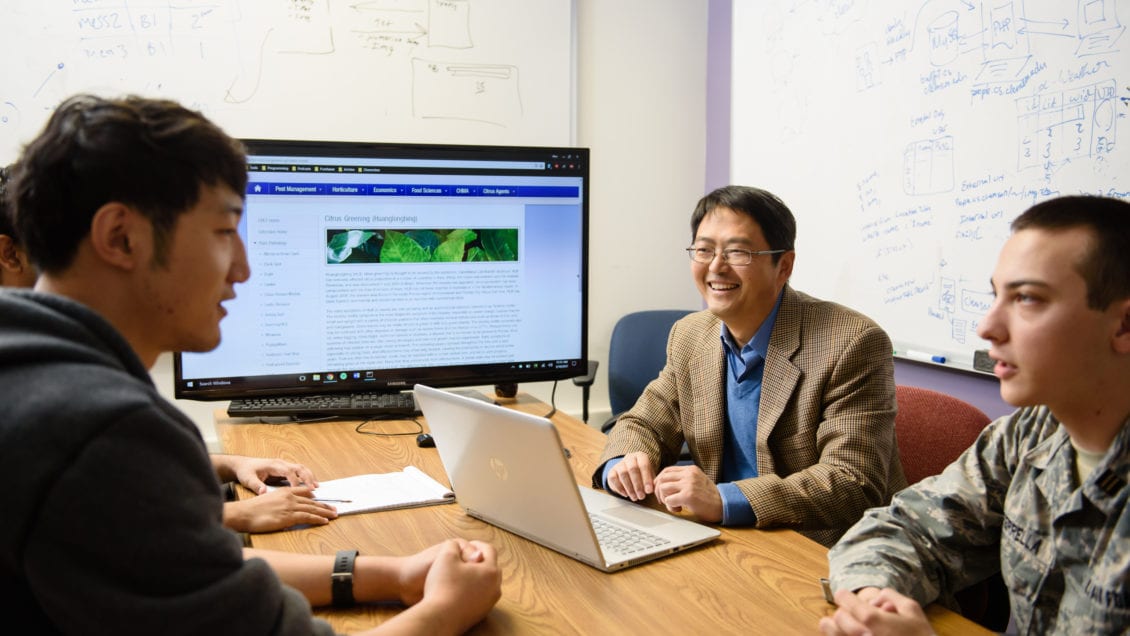A Clemson University professor has found himself at the heart of a monumental, international effort to sequence the human reference genome.
Feng Luo, the Marvin J. Pinson, Jr. ’46 Distinguished Professor in Clemson’s School of Computing, helped develop an algorithm used in the project’s latest advance, which was reported in the journal Nature.

The human reference genome is the standard of comparison for human DNA sequences in basic research and clinical settings. Creating a more complete human reference genome could lead to new advances in personalized medicine.
GRCh38, the current version, traces its roots back to the Human Genome Project, a $2.7-billion international effort that produced the human reference genome’s initial draft.
However, the human reference genome contains gaps and errors that keep it from reflecting the full spectrum of genetic diversity, and researchers around the world continue to improve on it.
Luo said the algorithmic tool he and his team developed, NECAT, caught the attention of other researchers, and they used it to produce the findings reported in the Oct. 19 Nature paper. The tool developed a new algorithm to correct errors in sequencing reads, working faster and more efficiently than other assemblers.
“Our group was recognized by the academic community for doing good work,” Luo said. “Our involvement in this study is validation that among the groups doing assembly in the United States, we are among the top.”
Luo said he and his team originally reported on the algorithm in a 2021 Nature Communications paper, “Efficient Assembly of nanopore reads via highly accurate and intact error correction.” Luo was among 15 co-authors and four corresponding authors on the Nature Communications paper.
In addition to his work on the human reference genome, Luo is leading a $4.3-million study aimed at protecting citrus crops from the devastating bacterial disease Huanglongbing. He has also participated in multiple other projects, including research aimed at combating cyberbullying, understanding the microbiome and advancing the development of composite materials.
Luo is the founding director of the Clemson Artificial Intelligence Research Institute for Science and Engineering (AIRISE).
“Dr. Luo’s recent publications are a testament to his scholarship, the high quality of research he produces and the impact he is having on the fields of computational genomics and artificial intelligence,” said Brian Dean, acting chair of Clemson’s School of Computing. “I congratulate him on his success.”
The Nature paper was titled “Semi-automated assembly of high-quality diploid human reference genomes.” Luo was among 84 co-authors from around the world to contribute to the research. Corresponding authors were Erich D. Jarvis, Giulio Formenti, Arang Rhie, Karen H. Miga and the Human Pangenome Reference Consortium.
“The new biological discoveries made here demonstrate that even with a single individual, additional genetic diversity contributing to the human population can be found,” the paper’s authors wrote. “Using these methods for the generation of additional diploid human genomes and creation of a human reference pangenome should enable a more-complete picture of human genetic diversity, greater accuracy for precision medicine for haplotype-specific diseases and a greater understanding of the biology of genomes.”
Get in touch and we will connect you with the author or another expert.
Or email us at news@clemson.edu

